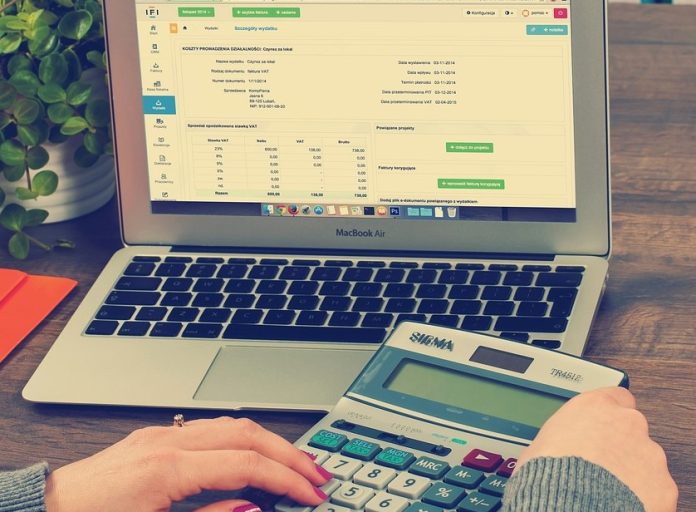 Tax rules and regulations are becoming increasingly complex, putting a significant burden on businesses to comply with ever increasing filing and reporting obligations. John Edwards, left, Chief Executive and Group Executive International of the Institute of Financial Accountants (IFA) looks at how your accountant can turn tax from a burden to a value-add
Tax rules and regulations are becoming increasingly complex, putting a significant burden on businesses to comply with ever increasing filing and reporting obligations. John Edwards, left, Chief Executive and Group Executive International of the Institute of Financial Accountants (IFA) looks at how your accountant can turn tax from a burden to a value-add
Having a tax strategy is a golden opportunity for businesses to implement initiatives that support their financial objectives and business growth. This is where accountants are essential, providing timely advice on appropriate tax legislation and best practice, and offering key insights into which tailored software solutions are best for your business’s tax needs. Doing research is key here, as is appointing an accountant who is qualified and able to advise on your tax matters and the appropriate software to meet specific needs.
The era of automation
Investing in smart tax technologies is a must for most businesses, particularly in light of recent systemic changes from HMRC, including previous and pending phases of Making Tax Digital. However, for many it is seen as a burden, an enforced change to systems that were previously deemed effective. Yet the transition also creates opportunity, such as embracing automation.
The demands of today’s business climate are forcing us to do more with less. For the tax function to add value to the business, it must evolve from time-consuming and error-prone manual processes. Automating time-consuming, manual tasks means freeing up the accountant to focus on futureproofing and working with the business in a more strategic capacity helping them to fully understand and analyse their future capabilities and finances. Without doubt, automation is changing the face of financial operations by delivering efficiencies, reducing errors, and optimising workflows.
It’s assisting small to medium sized businesses with real-time business decision making based on insights driven from accounting data. For example, the VAT function in a business sits on a wealth of data that can be used to report VAT, but the same data can also give valuable insights into the speed of invoice processing, level of accuracy, who and where the biggest customers and vendors are, how much working capital is trapped in VAT, and so much more. If VAT determination in invoice processing and reporting is automated, this frees up financial resource to provide a level of insight which can be critical to an organisation’s performance, as well as its commercial position.
Other benefits of automation are that changing rules and regulations can be acted on quickly (with minimal reliance on IT departments); reporting can be done with confidence in real-time; tax authorities can receive information directly through a system-to-system connection; and tax can react more quickly to changes in business including expansion into new territories.
ESG and sustainability
The growing climate crisis is driving businesses to focus on sustainability expectations and the adoption of resilient tax strategies. It has become apparent that environmental sustainability issues are not just core to a company’s corporate sustainability agenda but fundamental to its survival, as businesses become increasingly accountable not just for their finances but for the sustainability of their operations. Environmental, social and governance (ESG) issues are becoming key concerns – and a major draw – for global investors with their sights fixed on sustainability and climate change.
This is not just simply for the sake of compliance but increasingly it is driving tomorrow’s prospects as well as those over the next decade and beyond. Consumer demand for environmental sustainability is likely to outstrip government mandated action but both should, and will, drive business adoption of sustainable practices.
To drive real change, sustainability taxation needs to be implemented in such a way that it incentivises businesses, allowing them continued growth and encouraging revenue boosting investments while doing the right thing for the environment. Many of the government policies concerning the road to net zero will be tax related, ranging from grants and incentives to carbon taxes. Digitisation and embracing a modern approach to accounting and tax will allow your financial team to be ready to respond to mandated change. It will also mean that they are well-placed to deliver high quality integrated reporting assurance and will have the right skills and resources to react to the emerging business opportunities.
An integrated approach
In 2013, the International Integrated Reporting Council (IIRC) released a framework for integrated reporting, designed to help businesses explain to potential investors how the organisation creates value over time. It combines strategy, governance, performance and prospects in a report for key stakeholders. For many years, it has remained the domain of big business, but has been gaining traction with SMEs more recently, who are reaping the rewards. Adopting an integrated approach to reporting equips SMEs with a better understanding of their own organisation and of what’s driving long-term success.
There are many ways in which different business set-ups can take advantage. Resource-intensive clients, such as a manufacturer, could benefit from implementing circular economy principles to reduce waste and maximise value. By contrast, a local micro-brewery would perhaps benefit more from disclosing climate risks posed by the increased threat of drought, causing potential water and barley shortages. It is becoming abundantly clear that non-financial reporting is no longer peripheral, but a valuable predictor of long-term financial performance and an investment in the future.
In summary
As businesses of all sizes will be subject to increasing regulation, with the need to promote as well as prove its performance, now is the time for small to medium enterprises to invest in the expertise of a qualified accountant to create a robust tax strategy designed for a dynamic and digital world.


